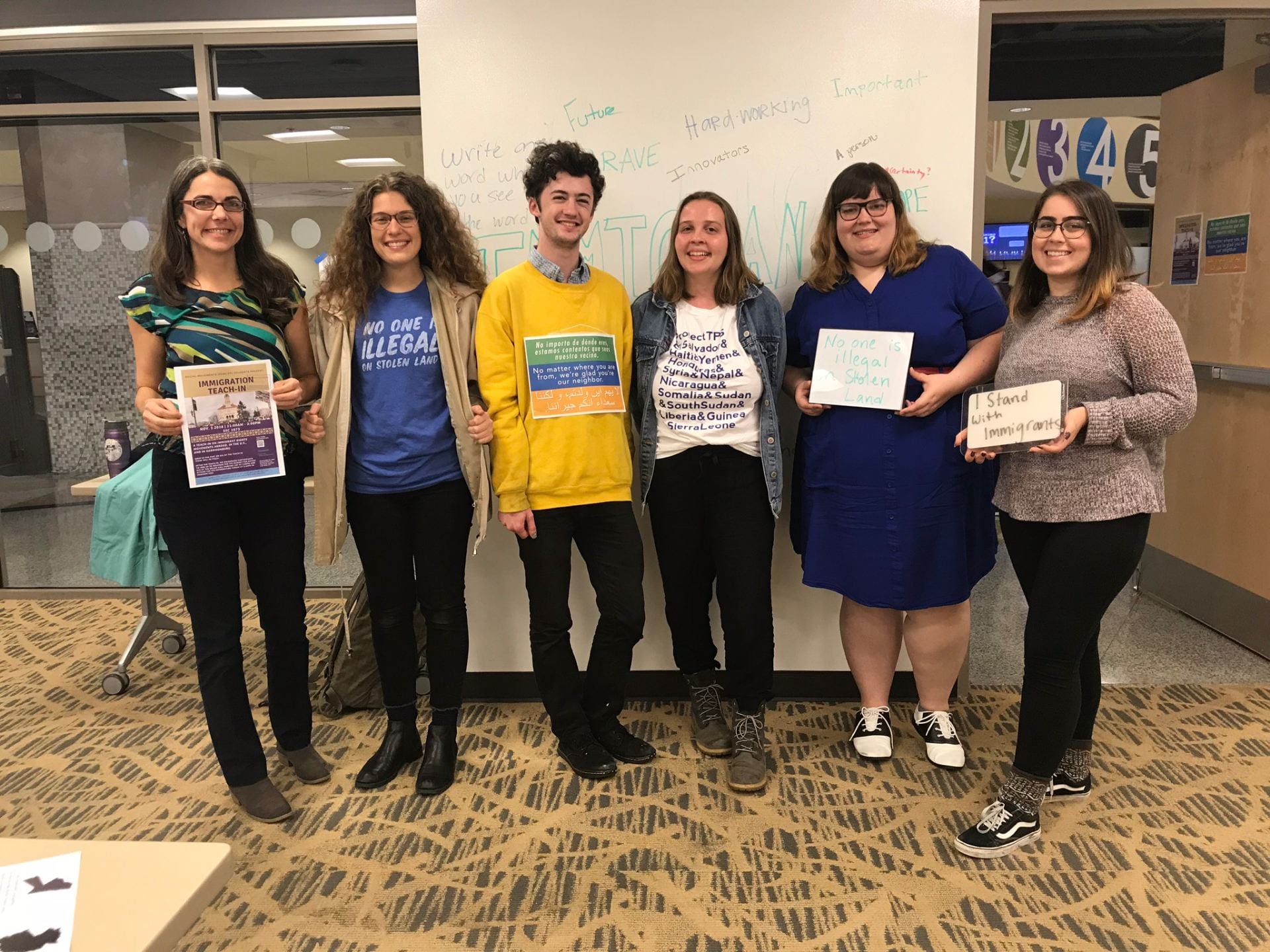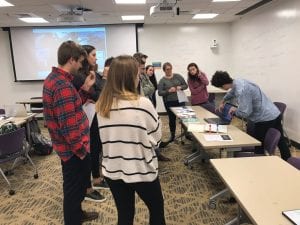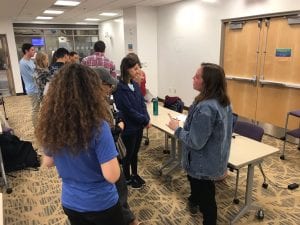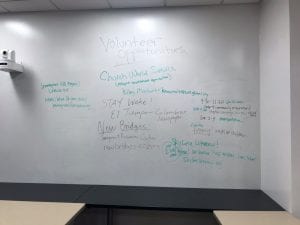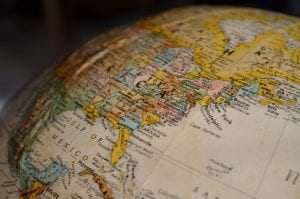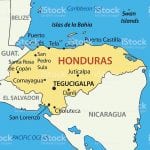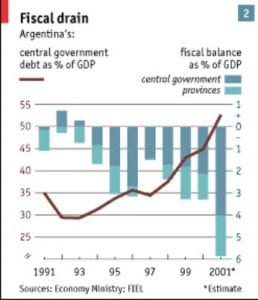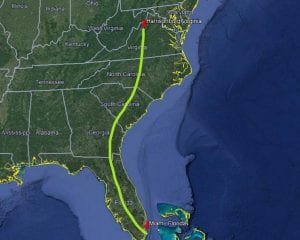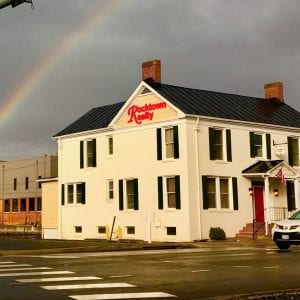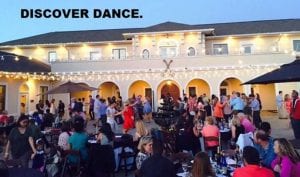TRANSCRIPT
(0:00 – 0:34) Joel: Alright, I’m here with Carlos Maldonado, resident here in Harrisonburg. Interviewer myself, Joel Ferrel, I’m here to conduct an oral history interview about his come a bout in Harrisonburg, and in the United States and how he impacted Harrisonburg, or since he’s young, how his parents impacted Harrisonburg and how it all came to be. So, to start off, why don’t you tell us a little bit about yourself, Carlos.
(0:35 – 0:49) Carlos: I’m a current JMU student, I’m a rising senior, and I’m a sociology major with a business minor and a concentration in business.
(0:50 -1:04) Joel: Alright, so we can definitely relate because I obviously go to JMU too so, yeah, what country are your parents or you originally from?
(1:05 – 1:08) Carlos: We’re from Honduras.
(1:09 – 1:12) Joel: And how long have you lived in Honduras for?
(1:13 – 1:28) Carlos: I lived over there until I was 9 years old, then I made my journey over to the US, and ever since I’ve been here for 13 years. My parents about 15-16 years.
(1:29 – 1:46) Joel: What made you guys want to leave Honduras? Was it because of that Hurricane that happened there, Hurricane Mitch in 1998? Or was it because of other reasons like work or money?
(1:47 – 2:05) Carlos: Just work and money. And we had some family over here, so my parents thought there were way better opportunities; so, we were just chasing the money and a better life and a better future for the whole family
(2:06 – 2:22) Joel: So, for whole family, like, does that include aunts and uncles that came with you. Or were there friends and families that went with you or were there friends or family waiting for you in a certain area that you came to?
(2:23 – 3:05) Carlos: To a certain extent. My parents came here first, like I mentioned. Around 2003 or 2004 I believe, and same with some uncles, 3 uncles if I recall. Then we came here in 2005 me myself and 2 brothers. But as of now its just the close family, my brothers and my parents. My uncles, they all left to Honduras, they didn’t like it so-
(3:06- 3:35) Joel: So, you guys are not about your culture and stuff or, did you bring your culture here to USA like the cooking and dressing or did you guys accustom to United State- burgers and fries and JORTS. Did you bring a taste of Honduras with you?
(3:36 – 4:00) Carlos: Oh yeah definitely, at home yes. We kind of prefer the Latino restaurants, especially my parents. I don’t mind it much, neither do my brothers; my dad still, he actually wants to back soon in 2-3 years. My mom, she’s not very fond of that.
(4:01 – 4:02) Joel: She doesn’t want to back?
(4:02 – 4:09) Carlos: No, she doesn’t want to back. She actually likes it here, but he, he wants to go back; he kind of misses it.
(4:10 – 4:27) Joel: Do you send remittances or like do you send your own money to help out you family or friends in need back to Honduras?
(4:28 – 4:56) Carlos: Yes, they do that, my mom and dad, so they either send it to my uncle or grandma. My dad is building stuff over there, he’s building stuff, he built 2 houses. He’s got a lot of cows, so it’s like a farm over there, he cultivates things, you know like corn and beans.
(4:57 – 5:08) Joel: So, the economy is essentially good over there? Well, I know there’s a lot of poverty and stuff, which I guess made you guys move to make more money, but as of now, is the economy better?
(5:09 – 5:42) Carlos: I wouldn’t say the economy is better, but it’s, you know how it’s a third world country, were still back in the bartering things and cultivating, so if you have animals, land, and tractors you pretty much can grow your own food and sell it. Compared to other people who don’t have that, are the ones who suffer if you ask me.
(5:43 – 5:54) Joel: So, how did you journey to here happen. Through boat or through Mexico? How did you to USA?
(5:59 – 6:18) Carlos: I made it through land, and through vehicle. So, from the beginning I recall one morning waking up, my grandma she woke us up. And we didn’t know about it.
(6:19 – 6:21) Joel: So, the kids didn’t know you were leaving, you and your brothers?
(6:22 – 7:19) Carlos: NO, we didn’t know. It was like 5 in the morning. And she was like “oh you guys are leaving to the US.” You know I was confused because you can’t just throw- I think I was 9, I’m the middle one by the way, I got 3 siblings. I was 9, my big brother was 10 and a half, and my little one was 6 years old. They woke us up, put us in a pick-up truck with an aunt so we then made it over here. I believe we crossed Guatemala, el Salvador, then Mexico. We shared a tractor-trailer.
(7:20 – 7:23) Joel: Like a big truck, filled with other people?
(7:23 – 8:06) Carlos: Yeah, they smuggled us in one of those, then we went to the safehouse. Then we crossed the river, The Rio Grande, The Grand River. So, once we crossed that, immigration caught us, so then after crossing swimming through the river we got caught. We went to this shelter. What are they called? Where they house the immigrants?
(8:07 – 8:09) Joel: Homeland security?
(8:10 – 8:25) Carlos: Yeah, it’s a part of homeland security. Yeah, but they keep the minors there, and they deported my aunt that came with us, but they let us stay because we were minors. Then our parents-
(8:26 – 8:30) Joel: Sorry, you went with your aunt and your parents and you 3 brothers?
(8:31 – 8:45) Carlos: No, no, just my aunt. My parents came over here 2 years prior. They had to come over to make the money to you know to save for us.
(8:46 – 8:47) Joel: Make a foundation for you guys
(8:48 – 8:49) Carlos: Yes, yes exactly.
(8:50 – 8:58) Joel: So, your aunt got caught, then you 3 just went, how did you go about, how did you find your way? I would be scared as a kid.
(8:59 – 9:10) Carlos: We all got caught, the thing is, since we were minors, they kept us, actually they kept us jailed, feeding us burritos for 2 weeks at least.
(9:12 – 9:13) Joel: Was it good at least?
(9:14 – 9:43) Carlos: They were pretty decent, you know, I would just go to Walmart and I would see those things and they would give me those things at school. Just the whole time it would remind me of the whole experience, we were pretty much jailed for about 2 weeks, a detention center. Feeding us burritos, until our parents showed up. Then our lives came about.
(9:44 – 9:48) Joel: You parents were on the US side coming to get you?
(9:49 – 10:00) Carlos: Yes, they were already in the US, and we were in Texas actually, so they drove from Virginia all the way to Texas to pick us up.
(10:01 – 10:02) Joel: All the way from Virginia to Texas?
(10:03) Carlos: Yes
(10:04 – 10:14) Joel: So, how long was your journey, in hours? From Honduras to Virginia? Or where ever your final destination was?
(10:15 – 10:41) Carlos: Honestly, I couldn’t tell you, because it took days, close to a week. And like I said, we were inside a tractor-trailer. So, there’s no sense of time, plus we were young, so its hard to make sense on it.
(10:42 – 10:50) Joel: So, when you came to Virginia, what part did your parents settle in?
(10:51 – 11:08) Carlos: We came to Harrisonburg, we’ve been in Harrisonburg since 2005. I went to half of 5th grade I believe, and then all the way to college here in Harrisonburg.
(11:09) Joel: So, you’ve just been staying local?
(11:11) Carlos: Yes, I’ve been local.
(11:13 – 11:22) Joel: How have your parents contributed to the economy of Harrisonburg, or work-wise what do they do around here?
(11:23 – 11:34) Carlos: It’s hard to contribute towards the economy and society when they’re immigrants themselves, they’re really limited-
(11:35 – 11:37) Joel: So, they couldn’t really get good jobs? Or careers?
(11:38 – 12:21) Carlos: Yeah, they couldn’t really get a career because of their status. But my dad he owns a landscaping company, so he still pays taxes through his tax payer ID, he can do taxes, so they tax his company and all the revenues and profits he does. He works locally, he also travels outside-
(12:22) Joel: Outside of Harrisonburg? Like all of Virginia, DC, northern Virginia too?
(12:29) Carlos: Yes, yes
(12:30 – 12:47) Joel: Let’s backtrack a bit, what was your first impression of USA? Like you said, that Walmart with the burritos, it makes you remember the burritos you had. What was your impression of all these stores, all these roads, how different was it from Honduras?
(12:48 – 13:17) Carlos: Very different, at the beginning I couldn’t get used to it. It’s a different culture, different language, different people. It hard to make sense of it, even the food. But you come to like it, and its nice now.
(13:18 – 13:23) Joel: Your initial impression was not so good, but how has it changed now?
(13:24 – 13:51) Carlos: I just really miss my family, Like I said, they dragged us out of bed at 5am without saying anything; pretty much it was a bad start from the beginning. If it would’ve been planned differently, I would have had hopes and aspirations on what to expect, but I just came to a random land and I wasn’t fond of it.
(13:52 – 14:07) Joel: So as kid you said you had hopes, what were you hoping for when you came to America? What did you expect of all this?
(14:08 – 15:03) Carlos: Pretty much, popular culture, you know just watching movies you see all the Americans having fun, hanging out with friends, socializing, going to king’s dominion/six flags all those types of things. But as an immigrant you can’t really do all that, you’re not just limited yourself, but your parents too. They can’t drive much because of license problem. Like you mentioned, the roads and stores, this and that. You can’t read the road signs, you can’t make sense of the money, its hard to put yourself out there.
(15:04 – 15:21) Joel: Were you treated differently since you were an immigrant or where you grew up or where you were at, were there more immigrant people or white people. How were you treated?
(15:22 – 16:00) Carlos: I used to think that people would treat me differently. But I think that’s just psychological, it really depends on your personality and how you go about yourself. I don’t think I was treated differently, but for sometime I felt like I was, but that is because of my barriers; of not being able to communicate or make sense of the environment and the people around me. But no, I wouldn’t agree with that.
(16:01 – 16:23) Joel: Did watching American movies fulfill your expectations? Or were you expecting something way more? Like you said you couldn’t go to kings dominion. Was your idea of America the same as it was in your reality or was it different?
(16:24 – 18:01) Carlos: I would go in between, thinking about it now, its life you got to take care of bills. I understand now why my parents wouldn’t go out on a lot of adventures/trips. But if you have the means to do all that, definitely I would have said it met my expectations, but I came to a country where my parents had to build the foundations of my family and take care of us from scratch. When my dad came and my mom, they had to be housed by my uncle I think, that was already here. You know, they came over here with nothing; a bag behind their back, clothes on them, pair of shoes, maybe a few dollars on them; but that’s it, you gotta start from scratch. And If you don’t have anyone to house you, your pretty much homeless, so it all starts from there.
(18:02 – 18:10) Joel: What was you experience like in middle school and high school?
(18:11 – 20:14) Carlos: I really liked middle school a lot, made a few friends moved on. My English wasn’t the best, but by 9th I got pretty good at it, I was pretty smart, good grades. Then it was 10th grade I started thinking about life, I started working with my dad in his landscaping company. In my off days, I wasn’t fond of them, I didn’t really like them. Then there was 11th grade, junior year, I was like wow, one more year I’m either going to be a full time worker or go to college. I thought about it, how am I going to go to college? Carlos: There was no way of going to college because I was an illegal immigrant. So, all those years of studying, trying to get good grades, and get through high school. It really challenges you, your mind and everything. Because you do all that, and at the end of the day, you just graduate high school and you’re just going to be another immigrant working in either construction or landscaping. Just getting paid minimum, because you can’t make a career of yourself, or get employed legally.
(20:15 – 20:22) Joel: And most of the time be paid under the table, if your employed by a corporation.
(20:23) Carlos: Right
(2:24 – 2:37) Joel: I guess you worked for your dad, and he had his company. When you got out of high school, your choices were work and study. Which one did you choose and why?
(2:28 – 2:40) Carlos: My dad he always supported education, he didn’t get an education himself. So, I didn’t really get a choice, he always wanted me to study. Just the means to get the education was challenging because illegal immigrants don’t get FASFA, federal aid; we do get scholarships though. Most of the immigrants they just slack off, and at the end of the day they don’t get FASFA. So, you got to pay everything out of pocket, and you can’t get loans because you don’t have a valid social security. You can’t get FASFA or loans, because you don’t have social security. However, back in 11th grade, in high school, that’s when Obama put out DACA, deferred action for children in America. So what DACA did, it provided any children of illegal immigrants. It provided them driver’s license, the ability to work legally, a social security, and you could also go to college! So that’s when my world came about. That’s when I got excited about life, you know I felt that all those years and the journey and sacrifices were not in vain because I was finally going to do what they wanted me to do. We were finally living our dream and changing the history of our family, because no one in my family went to college prior that. This was a big come about for us.
(2:41 – 2:55) Joel: You applied for DACA and everything, and you got your way in to college. What made you want to choose JMU?
(2:58 – 25:06) Carlos: I just feel that being a resident of the Harrisonburg community, I heard a lot about JMU, even though there aren’t a lot of Latinos in here. It’s a really nice institute, always driving in the streets, I imagined myself as one in the crowd. Backpack on, walking through campus, walking the quad, as an actual student, not just visiting. I remember the first time I saw it, I was amazed by it. And you know I was amazed and at the same time sad, because I thought I was never going to experience it. Because of my previous immigration status, but like I said, when DACA came around that changed.
(25:11 – 25:19) Joel: Alright, how has JMU, or Harrisonburg, shaped you as a person?
(25:20 – 26:42) Carlos: It’s definitely made me see things from a different perspective. For example, people don’t have it as easy as I imagine, its JMU a hard school, its very difficult. Everyone who’s here earned their way in, their acceptance. How it shaped me is, I can really see how people feel about the community by being a part of it. I see why the choose JMU, there’s a lot of Virginia residents, they really want to shape the community. Volunteering and joining clubs; the students are doing amazing things here and like I said, I’m glad to be accepted into it, and I try my best.
(26:43 – 26:49) Joel: So what organizations and clubs have you been involved with around here?
(26:54 – 27:54) Carlos: Right now, I’m in LSA which is Latino Student Alliance. And Environmental Management club, and I also play intramural soccer. I was also a part of Madison Motors, which was a club for car enthusiasts. I’ve tried to join other things, not a lot of things get my interest. I’ve gone to the thing where they show all the clubs.
(27:55 – 28:00) Joel: The interesting meeting?
(28:01 – 28:19) Carlos: I can’t recall, I feel like every time I go there the interesting clubs aren’t there. Either that, or I feel like there are too many female-related clubs.
(28:20) Joel: Sororities and stuff?
(28:21) Carlos: Yeah, rather than just, co-ed type of things.
(28:31 – 28:36) Joel: So, what made you want to be involved with LSA and EMC?
(28:37 – 30:41) Carlos: LSA, you know the whole Latino Community here in JMU and how there’s been a lot of things going on within the Latino community, ever since Donald Trump. So, I just wanted to stay inform and attend their meetings. Support the community, for instance, last year we were highly involved. I think we did about 3 walks around campus. Like, Silent Protest for DACA and TPS and another one. I forgot what the other one was for, but the reason for those protest, a silent protest, we just stand against the decisions made by the legal system; hence Donald Trump and all the decisions he’s been making. Especially on how he was trying to abolish DACA and the same with the TPS, which is Temporary Protected Status. Both of those services, what they do, they pretty much make illegal immigrants gives them the right to work and gives them driver’s license. And it just takes away their illegal status and their allowed to work. They help the community by working, and buying stuff, owning property and stuff like that.
(30:42 – 30:51) Joel: How did you apply for DACA? What papers did you have to go through and what did you have to turn? Was there a type of fee?
(30:52 – 32:14) Carlos: Yes, the way they do it, there’s like a certain criteria. I believe you have to arrive to the US prior being 29 or 30 years old, before 2001 I believe, and not have any criminal record. Also, yes there’s a fee, I think its about 500 or 600 dollars. The way you apply is, you either get a lawyer and they do all the applications and you can also do them yourself. After the application, you send it by mail and you wait around a month/a month and a half, they send you an interview. Not an interview, yeah, they send you something, so you can go take your fingerprints, after the run their records, their background check on you. They either decide if you qualify or not.
(32:15) Joel: And so, you qualified for everything?
(32:16 – 33:59) Carlos: Yes, I qualified back in 2011, and the way they do it is, that it expires every 2 years. So, every 2 years, since 2011, I’ve applied 3 times. Yeah, I’ve applied 3 times, all those 3 times it’s the same process. You send your application, you send a check for 500 dollars I believe and then you go for you biometrics appointment and then you wait for the month of their reply; whether they accepted or not.
(33:00 – 33:36) Joel: Under Obama’s presidency there was the Dreamers Act, DACA, all that he provided for illegal immigrant type students. But now that Trump under presidency, its been said that he terminated DACA and that he said he was going to send everyone back home. How does someone still renew their DACA or is still under being appealed?
(3:37 – 34:13) Carlos: The way how that goes is; he did try to revoke it, but you know both houses of congress didn’t let him do it. However, it did get revoked for a little bit, for about 2 weeks I believe. Can you refresh the question?
(34:14 – 34:29) Joel: Like, I guess it’s been said that Trump terminated DACA program, and you said only for a little bit. How does someone still renew their DACA or is still the same process now?
(34:30 – 34:57) Carlos: Oh yeah, it’s the same process pretty much, but its been rumored that this is the last renewal that people are going to get. But I haven’t heard anything about it being completely revoked; however, there is rumors that this is the last two years that it will run for.
(34:58 – 35:03) Joel: And can someone get denied their DACA by any chance?
(35:04 – 35:58) Carlos: Oh yeah, I forgot to mention, they say its discretionary decision. Depending on your record or anything like that, your background or whether the immigration agent who’s with you and your application, if he feels that anything doesn’t look right or if he’s in a bad mood. Then he can say no, and just stamp it and deny it. It’s a tough process, an agent being a in bad mood can determine the outcome of whether your legal or not.
(3:59) Joel: So, is it a bit like getting a Visa?
(36:05 – 36:21) Carlos: Yes, just that Visas tend to run longer, 5 years. The difference is just that DACA is 2 years.
(36:22 – 37:29) Joel: I have a cousin, his name is Dennis, and he came here on a vacation VISA. He was supposed to leave around December and even while he was on the vacation VISA he was still working, just getting paid under the table or getting paid under my uncle’s name, who is a legal resident of America. For someone that has DACA and its been repealed or denied now, like they had DACA they could study and whatnot which makes them a legal student under the eyes of the government. If you’re under DACA, you’re from Mexico you can study and get a license but let’s say they do something bad and they deny their DACA. What can that person do or are they seen as illegal immigrant, or can I support them?
(37:30 – 38:15) Carlos: Definitely when they make your sign, fill out applications and fingerprints. They ask for you addresses, for example me, they have my JMU address and my residential address. If by any case my application gets repealed/denied in anyway, ICE can show up any day at my doorstop and send me back to my country.
(38:20 – 38:34) Joel: Now that you’re here in JMU, under DACA, do you have any plans on bettering the community. What’re your plans after graduating.
(38:35 – 39:50) Carlos: After graduating well, what I’m trying to do with my degree, like I said I’m sociology with a business minor with concentration in markets and culture. I definitely want to stick around either work Human Resources or non-profit. I can go either way, or I can do any business-related type of work. But definitely local and I’d really like the non-profit way because it’s more centered towards helping the society/community, those around you. Either that or go towards the green center and renewable energy type of thing. Anything that betters the environment and the community around me.
(39:56 – 40:24) Joel: Alright, so, in the community of Harrisonburg what do you think about the whole immigration deal here in Harrisonburg, VA. Do you think they affect Harrisonburg in a good or bad way or does it affect the economy? What do you think on them?
(40:27 – 42:57) Carlos: I think it’s a positive thing to have, I never really liked the idea of not having different—I really liked the idea of having different groups of people together. It shapes the community differently I believe in a positive way. They used to say, this was the melting pot of cultures, people, this and that. That was an interesting topic in history and I really liked it. I still believe that its still a thing, it just brings about different perspectives, you just don’t know what’s going to happen, but I believe positive things are going to happen. Just because we got different minds, different backgrounds, different cultures; so, you know were all borrowing from each other, we learn. Immigrants in the community are a good thing, plus, it’s really easy to get rid of them, when they do something. All of their records, everyone is required to get an ID, identification card. Either going out, getting a drink, or getting anywhere. Most people, they just get a DMV ID card, or license. So, if an immigrant does anything bad, they’re not shaping the community in a positive way; sadly, ICE will come and get them, so there’s a solution for those who are not helping the community grow.
(43:00 – 43:24) Joel: Back to your parents, because like you said you a full-time student since you got here in elementary, middle school, high school, and college. How did your parents rise up in terms of their job status, in terms of their job status, where did they start off as, working wise and how did they get to the level they are now?
(43:25 – 44:09) Carlos: I would say hard work, knowing how to save money, not have any debts; they never went to college, when they arrived here, they started over in Florida, they were picking oranges and apples, you know any type of fruits doing manual labor. One day my dad came over to Harrisonburg to drop off someone and—
(44:10) Joel: He saw that there was business here and more work?
(44:14 – 44:27)Carlos: Yes, he saw that there was more landscaping here, Florida, I’ve never been there, but from the looks of it there’s no landscaping here, there’s a lot of retired people—
(44:28) Joel: Too many Cubans…
(44:24 – 45:50) Carlos: Yeah, that’s pretty much, that’s the city. Over here there’s more farmland. Like I said my dad did landscaping, and there was more landscaping over here, he liked it and it was better paid. Less stressful, the workload wasn’t that heavy, so from there he came over here, he saved up a little bit. Bought some tools and just started his own landscaping company. You know from there, things just got better for him. We can put it as that he’s a good businessman, he knows how to manage his tools, his money, and he knows how to be effective without an education. It’s surprising
(45:51 – 46:05) Joel: Yeah, same, my dad started from nothing and now he owns his own business, and it’s crazy how they did this without education, but that was back in the day where everything was cheaper, and everything was different.
(46:06 – 46:23) Carlos: True, I can see that too. Now there’s even more competition, there’s a lot of competition in landscaping and in all types of businesses.
(46:24 – 46:46) Joel: Your mom, was she more of a stereotypical housewife? How they put it in Latin America, you know when they grow up, they all got to learn how to cook and clean and that their life. Or when she came here, she came to work too or was it different?
(46:47 – 48:19) Carlos: No, she also came to work, what she did was either work for—cleaning houses, working for agencies, I guess not agencies, but also under the table working for other Hispanic people that have a cleaning company. She just tagged along and went out and cleaned, and now she works at a nursery, taking care of plants, planting plants. My dad has always been the, the one who brings the money home, and she just spends that money on food, groceries, clothes for the family; my dad pays for tuition and her money revolves around the family, taking care of us, and my dad takes care of the bills and for our education.
(48:20) Joel: Are your brothers also a part of DACA?
(48:24) Carlos: Yes, they are.
(48:28 – 48:38) Joel: Have any of them gotten in any trouble to have it repealed or are they studying in high school or college right now?
(48:39 – 50:10) Carlos: My younger brother, he’s in community college at the moment, last time I talked to him he was getting ready to apply for new university, you know transfer. Yeah, but he said he wanted to go to VCU, then he was like no I don’t want to anymore. So, I don’t know what his decision was. My older brother he actually dropped out of high school in his junior year, yeah, he didn’t like school, I have no idea why, he was so close to making it. But, yes, so right now its just my middle brother and I who are in college, that’s 2 tuitions my dad has to pay, both coming out of pocket, as previously mentioned, we don’t get any financial aid. Every class, every dollar spent every semester I feel it for him, so I’m out here trying to do my best.
(50:14 – 50:31) Joel: Does your dad in anyway contribute to Harrisonburg with his work or is he a lot about the money and doesn’t care about volunteering?
(50:34 – 53:12) Carlos: I’ll be truthful, he just cares about the money, like I said, he probably wants to go back in about 2 years, back to Honduras, he misses his country. I totally understand where he comes from, because, he came here in his late-mid 30s I believe, you know, to him this isn’t really his community, he wasn’t born and raised. When your born and raised it’s a different feeling, I know I wasn’t either, but I came as a stranger and I still young enough to adapt to the whole feeling of a community, but at his age, still not being able to perfect his English, barely get around with it, I could see why he doesn’t go out or go around his way to help the community around here, because everything, despite being here for around 15 years, it still feels strange, the fact that you weren’t born and raised. But it my conservation, purchasing either equipment, the fact of paying taxes, owning a company, revenue just goes revolves through the whole economy. I would say in a way, that’s still contributing to Harrisonburg and its economy. So, in a way yes, also he bought 2 tractors, he has a whole bunch of working equipment, so that’s also in some type of way contributing to the economy of Harrisonburg, on whole USA as a whole. Wouldn’t you say?
(53:13 – 53:17) Joel: Yeah, the whole macro economy and micro economy.
(53:18 – 53:51) Carlos: Yes, you know your actually doing something and it just revolves and goes back. Your feeding the whole economy of the US when you purchase a vehicle, house, and equipment and tractors like he did. So you know, definitely I would say he was a successful businessman.
(53:52 – 53:59) Joel: Is you dad now, did he apply for his citizenship? Or is he protected under his immigration status?
(54:00 – 55:54) Carlos: No, he hasn’t applied for citizenship, I don’t know if there’s a path for him to have citizenship, but he does have a workers permit and so does my mom. They just received it a year ago. So right now, they have working social securities and valid drivers license and they feel safer now; however, there was, they felt unsafe about giving the government all their information, because they did have to go and place their fingerprints, they had to give up their address, their workplace. So, if anything, out of the blue, if Donald trump decides to place a criteria on certain individuals, previous immigrants under a workers permit, without you know, that don’t have any visas then, visas hold greater power than just a simple workers permit. Because you’re here illegal, and they can take a workers permit anytime. I would say its like a license, and they can take it away anytime. It’s a license that allows you to get a job, lets put it that way.
(55:55) Joel: They’re using it to their full advantage?
(56:00 – 56:31) Carlos: Definitely, you know because, just last week they were going to look for a house, looking to buy a house, which I don’t understand how that connects to the point that he wants to go back to Honduras. But maybe he wants to buy it, and put a down payment and let us finish the payments ourselves or maybe—
(56:32) Joel: He’s making a plan for you guys, giving you guys a place to live?
(56:35 – 57:47) Carlos: Yeah, maybe, he’s actually looking into the long-run, and hopefully he obtains citizenship one day and travel back and forth; since he knows a lot of people that take goods from over here and go over there and sell them. There’s a lot of things going on craigslist that are given away. With this consumption economy, mass production, there’s a lot of things out there in the curve of houses. He knows a lot of people that go around and collect things and take it back to Honduras and sell them and actually make a profit. I think he’s going to do something like that once he gets older and can’t do anymore landscaping and hands-on type of labor.
(57:48 – 58:19) Joel: Now that were under the Trump administration, do you think it’s hard for someone to apply for working visas or visitors visa or even DACA? Do you think its harder for an immigrant to come and work here now? Now than ever before?
(58:20 – 59:06) Carlos: Like coming from a foreign country? I would say depending on the skills, engineers are always welcomed, but if its physical labor, hands on type of thing, yeah, they’re not going to let them in. I don’t know if you’ve seen the news lately, Trump says any kid born from an illegal immigrant, he wants to strip away they’re citizenship.
(59:07) Joel: That’s not allowed, anyone born here is a naturalized citizen.
(59:11 – 59:26) Carlos: Yeah, it’s a constitutional amendment, but you know, things like that, one day he’s going to find a loophole out of one of his idea, and something might happen, so who knows.
(59:27 – 59:47) Joel: Alright, so, thank you for the interview, this was also for my History 313 class, if I didn’t mention it, and this was the interviewee Carlos Maldonado, and how old are you again?
(59:48) Carlos: I’m 23.
(59:52 – 1:00:08) Joel: So, we just got two students here, one who’s me the interviewer, Joel Ferrel, and Carlos Maldonado. I just want to thank him for doing this with me, and Thank you, and alright goodbye.
